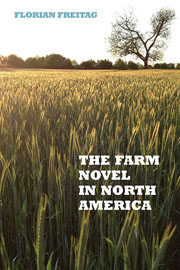 The Farm Novel in North America
The Farm Novel in North America Published online by Cambridge University Press: 05 December 2013
In his 1941 preface to Un homme et son péché ([1933] 1986), Claude-Henri Grignon writes that materialism is an integral part of the universal “âme paysanne”: “Des usuriers, des grippe-sous, des passionnés de l'argent tel que mon Séraphin, ils ne sont pas rares en terre canadienne…. Non pas seulement ici, mais en France; non pas seulement en France, mais dans tous les pays où la paysannerie s'accroche au sol” (219–20). Especially during the 1920s and the 1930s, many North American farm novels portrayed rural misers or materialistic farmers. The topic became so prominent that in 1942 the French Canadian journalist, novelist, and literary critic Harry Bernard chose to specifically examine “Romans de l'avarice” in the first— and to date the only—comparative North American study of farm novels. Quite in contrast to Grignon's statement, however, North American farm novels depict materialists and misers not as typical representatives of the “âme paysanne,” but as elements out of place on the farm, as “machines in the garden.” As they usually either are reformed or meet an exceptionally tragic fate in the novels, the texts insist that although these “machines” may occasionally find their ways into the garden, the farm is a space for rich harvests, not for materialists.
To save this book to your Kindle, first ensure [email protected] is added to your Approved Personal Document E-mail List under your Personal Document Settings on the Manage Your Content and Devices page of your Amazon account. Then enter the ‘name’ part of your Kindle email address below. Find out more about saving to your Kindle.
Note you can select to save to either the @free.kindle.com or @kindle.com variations. ‘@free.kindle.com’ emails are free but can only be saved to your device when it is connected to wi-fi. ‘@kindle.com’ emails can be delivered even when you are not connected to wi-fi, but note that service fees apply.
Find out more about the Kindle Personal Document Service.
To save content items to your account, please confirm that you agree to abide by our usage policies. If this is the first time you use this feature, you will be asked to authorise Cambridge Core to connect with your account. Find out more about saving content to Dropbox.
To save content items to your account, please confirm that you agree to abide by our usage policies. If this is the first time you use this feature, you will be asked to authorise Cambridge Core to connect with your account. Find out more about saving content to Google Drive.